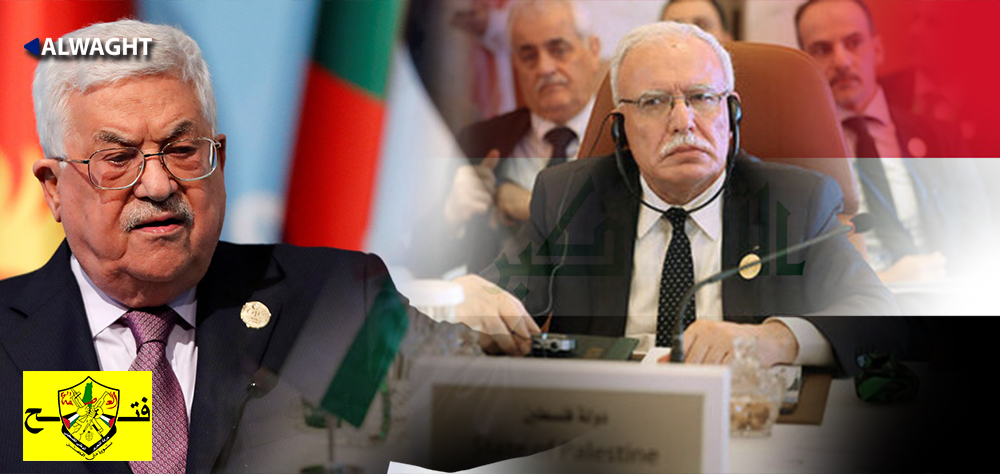Alwaght- Palestinian Foreign Minister Riyad al-Maliki arrived in Baghdad on Sunday for an official visit to Iraq, three days after a ceasefire ended Israeli airstrikes on Gaza. The interesting point is that Iraq was the first destination of an official of the Palestinian Authority after the 12-day Israeli war on Gaza.
Al-Maliki's visit to Baghdad has raised two important questions: What's behind the Palestinian Authority's arrangement of the trip a couple of days after Gaza ceasefire? What political messages does choosing Iraq as the first destination of a Palestinian official carry?
Fatah seeking rebuilding its damaged image
The Palestinian Authority, always in favor of compromises and negotiation with the Israeli regime, lost much of its popularity and position in the Palestinian society after the recent Israeli war on Gaza. According to the analysts, Palestinian elections, if held, can bring major success to Hamas as rival to Fatah which dominates the Palestinian Authority. Now the recent conflict in Gaza more than ever disclosed Hamas popularity at home.
Thus, it seems that the leaders of the Fatah movement have now come to the conclusion that the developments of the 12-day war in the Gaza Strip have weakened their position and prestige more than ever before, and that any election in Palestine will bring them loss. As a result, the Palestinian Authority, led by Mahmoud Abbas, seeks to quickly rebuild and restore its tarnished image among Palestinian citizens. Its leaders are trying to, on the one hand, attract the support of the regional states by arranging trips, and on the other hand, show the Palestinian citizens that they are pursuing their interests and demands at diplomatic levels.
Pro-compromise camp, normalization with the Israeli regime fall
Recent developments in the occupied Palestinian territories, culminating in Hamas's 12-day resistance against the Israeli aggression on Gaza Strip, can be read as a major setback to the Arab pro-compromise camp and the proponents of normalizing relations with Tel Aviv. In the past year, some Arab regimes, such as the UAE, Bahrain, and Sudan, with the covert support of the Saudis, embarked on normalization with the Israeli regime. They tried to paint the thaw process inevitable and foist it on the other countries, including Iraq.
But the new aggression on Gaza, in which the Israelis once again demonstrated their endless hostilities to the Palestinians, brought the Palestinian cause on top of the world focus and also brought defeat to the normalization process. In other words, now any support to the normalization will be regarded as a big treason that would destroy the legitimacy of its advocates.
In the past two weeks, Iraqis such as government officials and prominent figures like Muqtada al-Sadr, Ammar al-Hakim, the Popular Mobilization Forces' leaders have declared their full support for the Palestinian people and their resistance to the barbarous Israeli aggression. Sadr Movement even emphasized its readiness to defend Al-Quds and other occupied territories. Iraq, as a backer of the Palestinians, sent a message to the world, saying that Baghdad is against the pro-compromise Arab regimes and is resolute in backing the Palestinian struggle for liberation.
"The Iraqi society support for the Palestinian cause exists and continues. Palestine needs a clear Intra-Palestinian dialogue," Iraqi Foreign Minister Fuad Hussein said during meeting al-Maliki. He said that first session of the Joint Iraqi-Palestinian Committee will be held soon in Ramallah to show special Iraqi attention to the Palestinian cause and condemnation of the Israeli crimes.
Iraq turns into a significant regional actor
Another reason for Al-Maliki's Iraq trip after Gaza ceasefire is Iraq's growing mediatory role. Iraq, moving past its crises of the recent years, is restoring its traditional position and power in the region. Al-Maliki's visit showed that Iraq's role is now recognized by the regional players, including the Palestinian Authority.
This was highlighted by FM al-Maliki during talks with his Iraqi counterpart. He told FM Hussein that Iraq as an important regional actor has a significant role in coordinating the future developments.
"The aim [of the trip] is to coordinate the [political] stances for the future," Palestinian FM said, adding: "Iraq is a friend and supporter to Palestine."



























